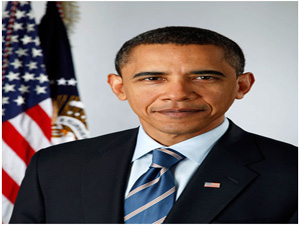



Date:19/09/11
 President Barack Obama signed legislation Friday that for the first time in years changes the nation’s patent system.
President Barack Obama signed legislation Friday that for the first time in years changes the nation’s patent system.
Those reforms, however, do not address the ongoing mobile phone patent war, in which the world’s major technology companies including Apple, Google, Microsoft and Samsung are suing, countersuing, building patent arsenals and signing nonaggression pacts — in what looks to the outside world like a total waste of energy and money.
Zach Carter of the Huffington Post perhaps provides the most critical description of the legislation, which was six years in the making:
“The compromise will leave companies free to secure questionable patents — the combover haircut, the crustless peanut butter and jelly sandwich — and secure huge patent infringement judgements from companies in court, a practice that has become especially popular in the technology sector.”
That said, the America Invents Act does create a new avenue for challenging patents, albeit a limited one.
It allows third parties to introduce evidence of so-called “prior art” (proof the invention had already been invented) to block patents from being issued, and it also introduces a new framework to challenge patents in a “post-grant review” process.
The Electronic Frontier Foundation argues that the new challenge rules favor big businesses, such as Microsoft which can afford to pay lawyers to constantly monitor new patent applications to look for infringements on its existing patents.
By contrast, the guy who invents a better transmission in his garage isn’t likely to spend his time, or have the resources to monitor the Patent and Trademark Office for infringing patent proposals.
“In reality, though, these procedures offer few practical chances for ordinary people who don’t constantly monitor the Patent Office,” said Julie Samuels, an EFF staff attorney.
President Obama said the plan, which expedites the patent review process, would create jobs. “This much needed reform will speed up the patent process so that innovators and entrepreneurs can turn a new invention into a business as quickly as possible,” he said.
The law now grants patents to the first inventor who files for it, not the first to create an invention. The original inventor, however, can successfully challenge the patent if it can be proven the invention was taken from him.
Obama Signs Patent ‘Reform’ Bill — ‘Crustless Sandwich’ Still Patented
 President Barack Obama signed legislation Friday that for the first time in years changes the nation’s patent system.
President Barack Obama signed legislation Friday that for the first time in years changes the nation’s patent system. Those reforms, however, do not address the ongoing mobile phone patent war, in which the world’s major technology companies including Apple, Google, Microsoft and Samsung are suing, countersuing, building patent arsenals and signing nonaggression pacts — in what looks to the outside world like a total waste of energy and money.
Zach Carter of the Huffington Post perhaps provides the most critical description of the legislation, which was six years in the making:
“The compromise will leave companies free to secure questionable patents — the combover haircut, the crustless peanut butter and jelly sandwich — and secure huge patent infringement judgements from companies in court, a practice that has become especially popular in the technology sector.”
That said, the America Invents Act does create a new avenue for challenging patents, albeit a limited one.
It allows third parties to introduce evidence of so-called “prior art” (proof the invention had already been invented) to block patents from being issued, and it also introduces a new framework to challenge patents in a “post-grant review” process.
The Electronic Frontier Foundation argues that the new challenge rules favor big businesses, such as Microsoft which can afford to pay lawyers to constantly monitor new patent applications to look for infringements on its existing patents.
By contrast, the guy who invents a better transmission in his garage isn’t likely to spend his time, or have the resources to monitor the Patent and Trademark Office for infringing patent proposals.
“In reality, though, these procedures offer few practical chances for ordinary people who don’t constantly monitor the Patent Office,” said Julie Samuels, an EFF staff attorney.
President Obama said the plan, which expedites the patent review process, would create jobs. “This much needed reform will speed up the patent process so that innovators and entrepreneurs can turn a new invention into a business as quickly as possible,” he said.
The law now grants patents to the first inventor who files for it, not the first to create an invention. The original inventor, however, can successfully challenge the patent if it can be proven the invention was taken from him.
Views: 836
©ictnews.az. All rights reserved.Similar news
- Mobile operators of national market to reduce roaming tariffs
- Iran vows to unplug Internet
- China Targeting Telecoms in Corruption Probe
- Bangladesh to use electronic voting system for next elections
- Philippine IT sector to launch five-year digital strategy plan
- Russian Premier Vladimir Putin meets ITU Secretary-General Hamadoun Touré
- US lawmakers propose to regulate use of geolocation data
- Unlimited mobile data plans dying as telcos gear up for cloud future
- Europe at risk of falling behind US and Asia on 4G use
- Netherlands first to regulate on net neutrality
- Korean Co Takes Aim At Display Patents
- Regulators, Banks Look for IT Hires After Breakdowns
- Electron transactions spreading
- Schools in remote rural areas will connect to the single database via network without SIM
- Obama to Personally Tweet From Twitter Account





















